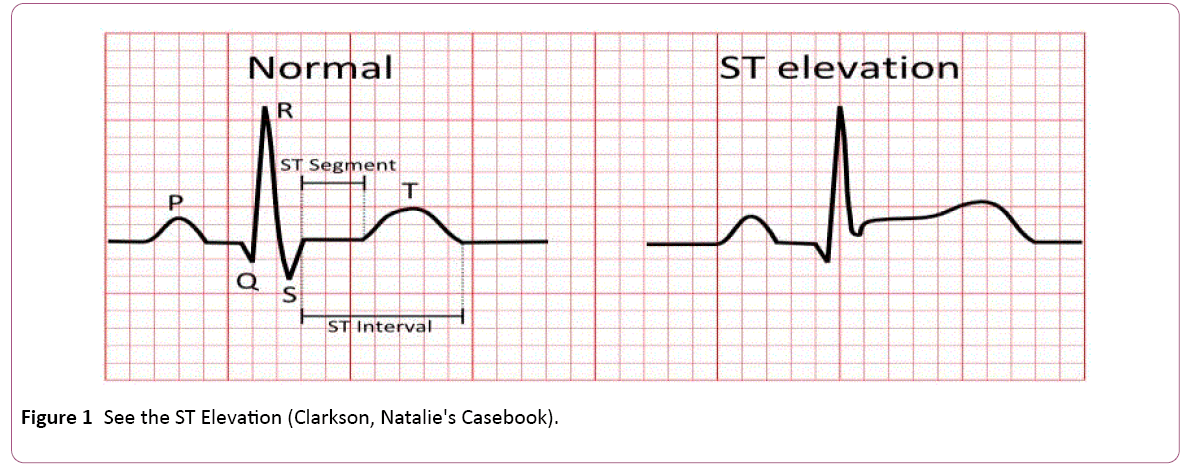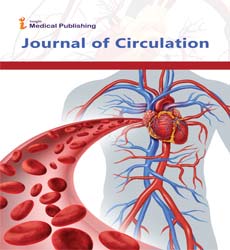An Article about Meta-analysis and Circulation
Department of Biostatistics, Eskisehir Osmangazi Universty, Turkey
- Corresponding Author:
- Fezan Mutlu
Professor, Department of Biostatistics
Eskisehir Osmangazi Universty, Turkey
Tel: +90 530 327 43 40
E-mail: fsahin@ogu.edu.tr
Received date: August 10, 2017; Accepted date: August 10, 2017; Published date: August 17, 2017
Citation: Mutlu F (2017) An Article about Meta-analysis and Circulation. J Circ. Vol.1 No.1:1
Introduction
Meta-analysis is necessary equipment for researchers, practitioners and all evidence based areas.
Meta-analysis helps to find final objective evaluation for the research’s field, which includes all accumulated data. Therefore, that provides a unique perspective to see whole picture. As example, one of the recent meta-analysis of circulation research collected 872 articles along 27 years without any language restriction, which considered of interest and fully reviewed. However, 16 eligible articles selected due to different reasons that provides to researchers to have 16447 patients for the analysis [1].
Meta-analysis increases value of the studies by decreasing the possibility of selecting uneligible evaluation, which leads to have such a better treatment options for medical fields [2,3].
Discovery studies, such as considering divisions of issue, which specifically needs medical care, might lead to have new dimension to be search [4,5].
Researchers could see the strong and weak point of works by creating meta-analysis. Although it looks quite confusing, metaanalysis comprises controversial data, which needed to be clarified at further pages [6]. Researchers should perceive the size of data as consistently widening. Individually, that is the reason of not been possible to keep up all articles to read, understand the concept and synthesize them all. At this point, meta-analysis come along as diamond who wants to follow-up of evidence based research development in their field.
Meta-analysis is required to determine of quality of evidence on available articles that is significant to design new studies. Beside of this, they can obtain of prevalence and incidence data of considered works [7].
In the past, meta-analysis might not get well enough attention. However, recently, numerous articles are formed as meta-analysis that provides a perfect view of potential value of these works.
According to Comer et al. [4]’s work, the figure that located above pointing a key concept of an acute coronary artery lesion in terms of ST elevation. On the other hand, when ECG does not show any ST elevation, that does not mean that there is no other underlying conditions of the heart attack patient (Figure 1).
In addition to this key concept, one of the meta-analysis research mentioned that, cerebral oxygenation efficiently use on going cardiac operations [8].
Many terminologies are used to define of meta-analysis, such as systematic review, research synthesis, and overview. However, systematic review may or may not cover a metaanalysis. The differentiation between systematic review and meta-analysis is significant to assess the data [9], but sometimes it is not appropriate to use due to the having multiple results from different statistical analysis [10]. In addition, there are some miscomprehension between meta-analysis and systematic reviews.
For instance;
False believes: Meta-analysis can come from medical field only.
Truth: Meta-analysis can widely use many fields of science.
False believes: Systematic reviews and meta-analysis is available merely treatments.
Truth: These two tools for research are applicable most areas of science.
False believes: Meta-analysis can handle of quality issue of studies.
Truth: Meta-analysis cannot make a contribution for research quality [11].
Moreover, there is a need that oriented to make a clear picture of differentiation between meta-analysis of randomized controlled trials and meta-analysis of epidemiological studies [12].
Randomised Controlled Trials (RCTs) are scientific research, which assess the safety of a new medication of treatment among Human volunteers. That type of studies establish based on evidence also that requires validity and reliability in their consequences, which makes them more precious.
Epidemiological studies are also called as observational research that comprises of cohort, case control, cross-sectional design, historical controls and a case series. One of disadvantage of this type of research might be, not having an experimental and control groups of study.
References
- Yudan L, Tian Z, Minzhou Z (2017) The prognostic impact of the coronary collateral circulation in patients with coronary artery disease: A meta-analysis. Biomed Res 28: 9.
- Farris RWD, Di Gennaro JL and Roberts JS (2015) Systematic review and meta-analysis of end-tidal carbon dioxide values associated with return of spontaneous circulation during cardiopulmonary resuscitation. J Intensive Care Med 30: 10.
- Pawliszak W, Raffa GM, Malvindi PG, Kowalkowska ME, Zaborowska K, et al. (2016) Safety and efficacy of miniaturized extracorporeal circulation when compared with off-pump and conventional coronary artery bypass grafting: Evidence synthesis from acomprehensive Bayesian-framework network meta-analysis of 134 randomized controlled trials involving 22,778 patients. Eur J Cardiothorac Surg 49: 13.
- Comer AC, Nable JV, Johnston PV, Lawner BJ, Woltman N, et al. (2016) Patients without ST elevation after return of spontaneous circulation may benefit from emergent percutaneous intervention: A systematic review and meta-analysis. Resuscitation 108: 7.
- Lan, Liu L, Leung TW, Wong KS (2016) Good collateral circulation predicts favorable outcomes in intravenous thrombolysis: A systematic review and meta-analysis. Eur J Neurol 23: 12.
- Kosaryan M, Gill P, Alipour A, Shiran M, Jalalli H, et al. (2016) Non-invasive prenatal diagnosis of and beta-thalassemia by detection of the cell-free fetal DNA in maternal circulation: A systematic review and meta-analysis. Ann Hematol 95: 10.
- Alsidawi S, Allen CC, Faircloth J, Palumbo JS, veldtman GR (2015) Strategies for thromboprophylaxis in fontan circulation: A meta-analysis. Heart 10: 7.
- Serena G, Corredor C, Benedetto U, Maybauer MO, Al-Subaie N, et al. (2015) Cerebral oximetry and return of spontaneous circulation after cardiac arrest: A systematic review and meta-analysis. Resuscitation 94: 6.
- Antonitsis P, Haidich AB, Argiriadou H, Deliopoulos A, Papakonstantinou C (2013) Use of minimal extracorporeal circulation improves outcome after heart surgery: A systematic review and meta-analysis of randomized controlled trials. Int J Cardiol 164:12.
- Egger M, Davey-Smith G and Altman D (2008) Systematic reviews in health care: Meta-analysis in context: John Wiley & Sons.
- Littell JH, Corcoran J, Pillai, V (2008) Systematic reviews and meta-analysis: Oxford University Press.
- Wang D and Bakhai A (2006) Clinical trials: a practical guide to design, analysis and reporting: Remedicaz.
Open Access Journals
- Aquaculture & Veterinary Science
- Chemistry & Chemical Sciences
- Clinical Sciences
- Engineering
- General Science
- Genetics & Molecular Biology
- Health Care & Nursing
- Immunology & Microbiology
- Materials Science
- Mathematics & Physics
- Medical Sciences
- Neurology & Psychiatry
- Oncology & Cancer Science
- Pharmaceutical Sciences

